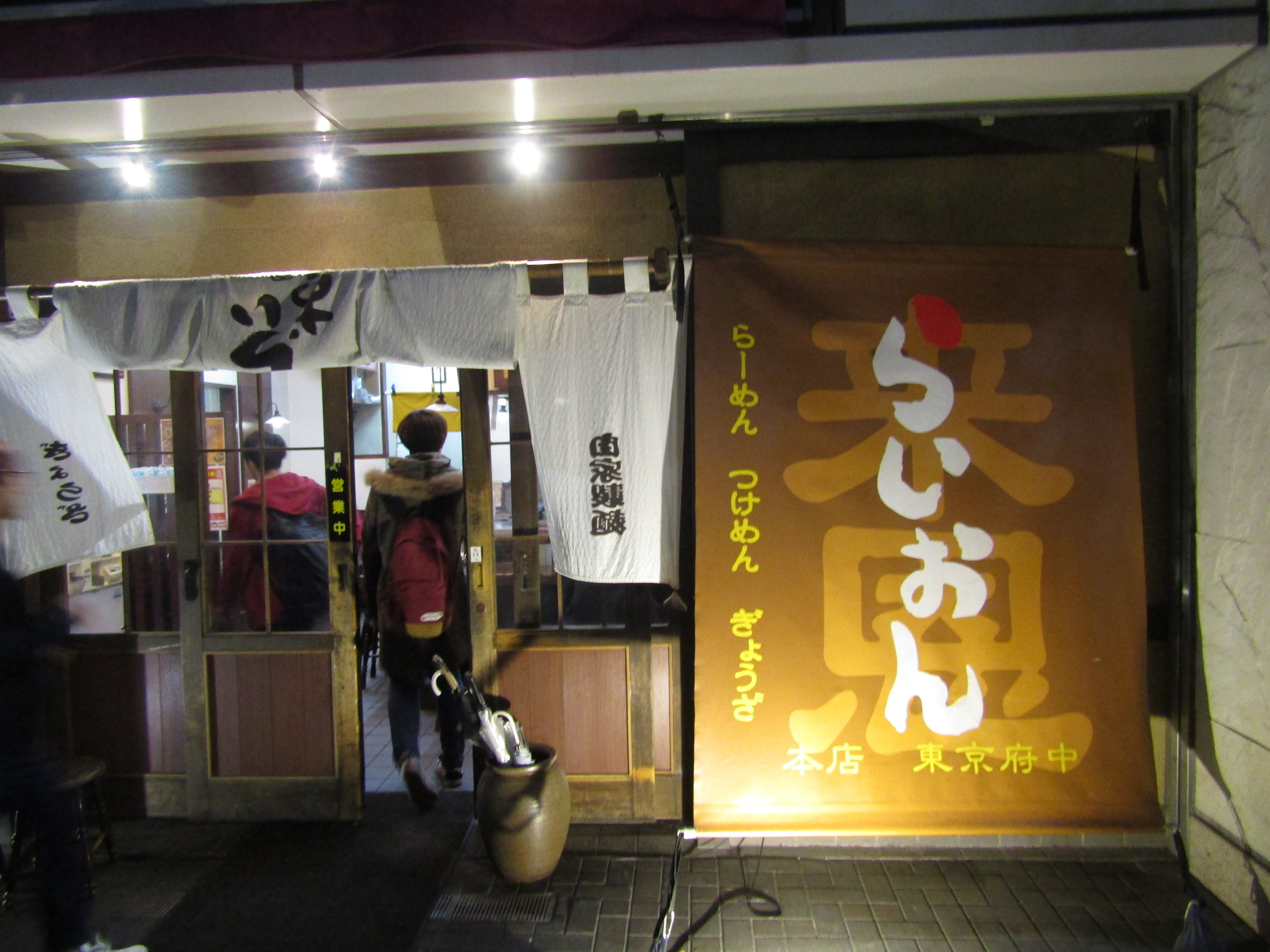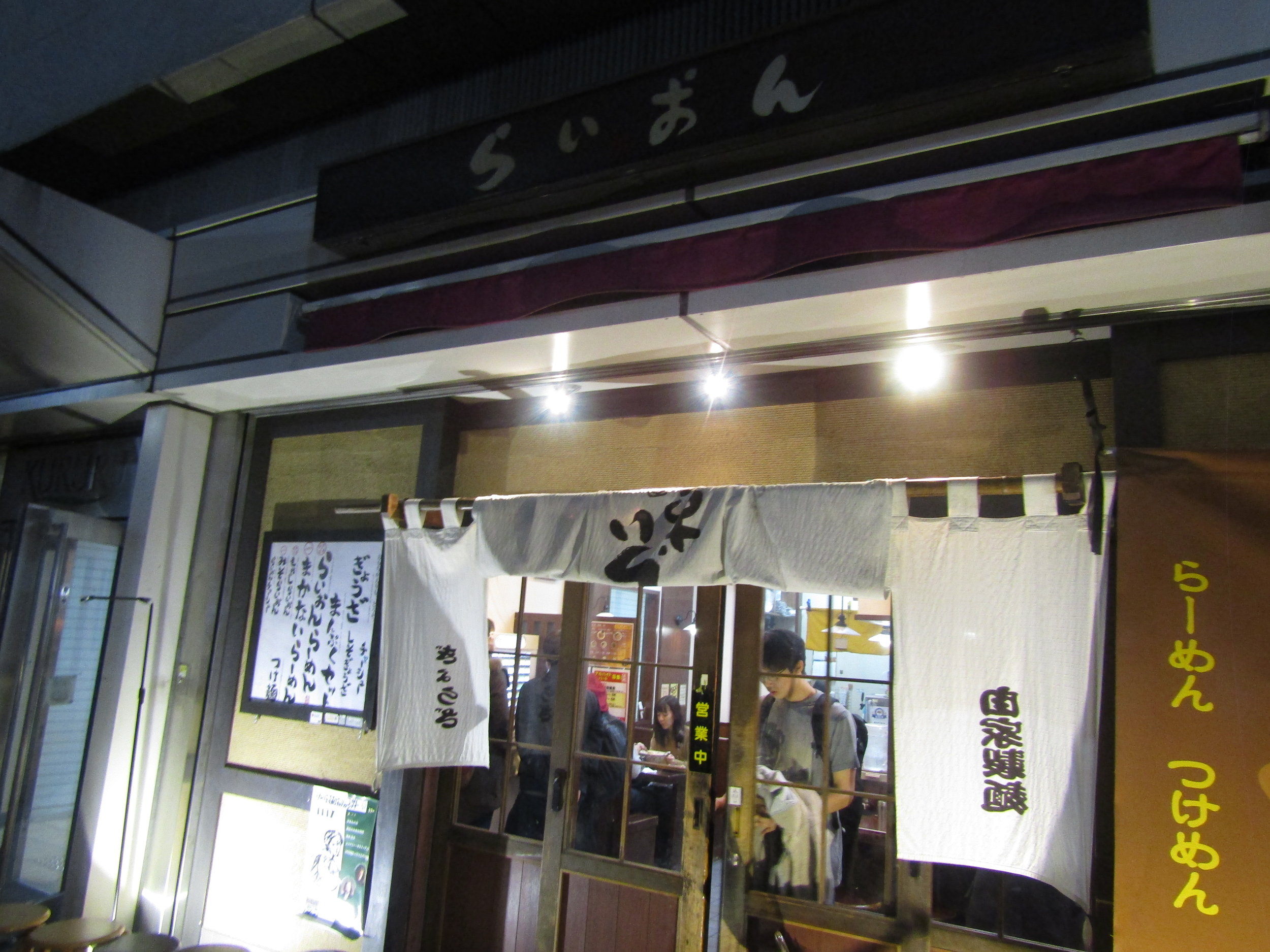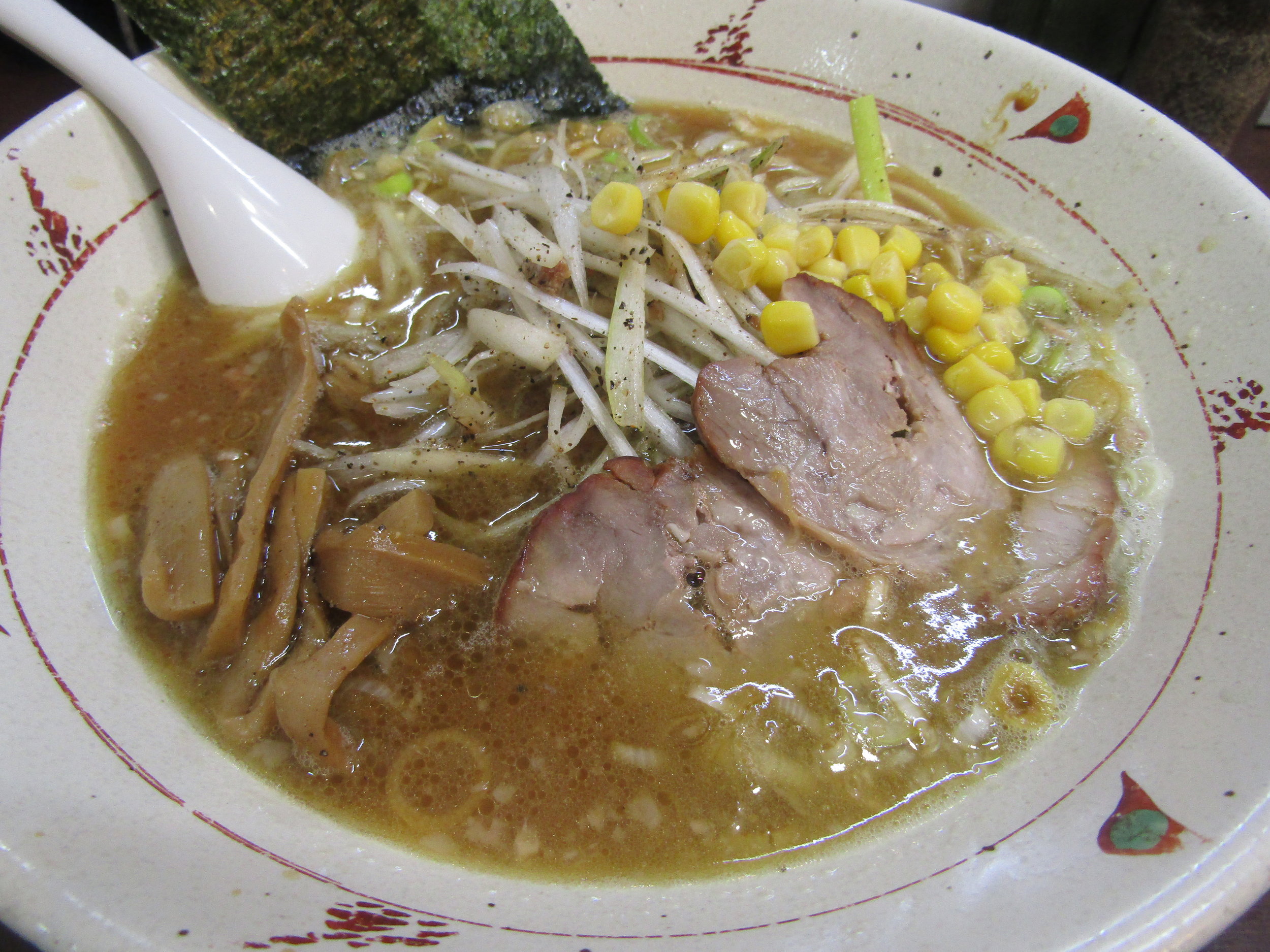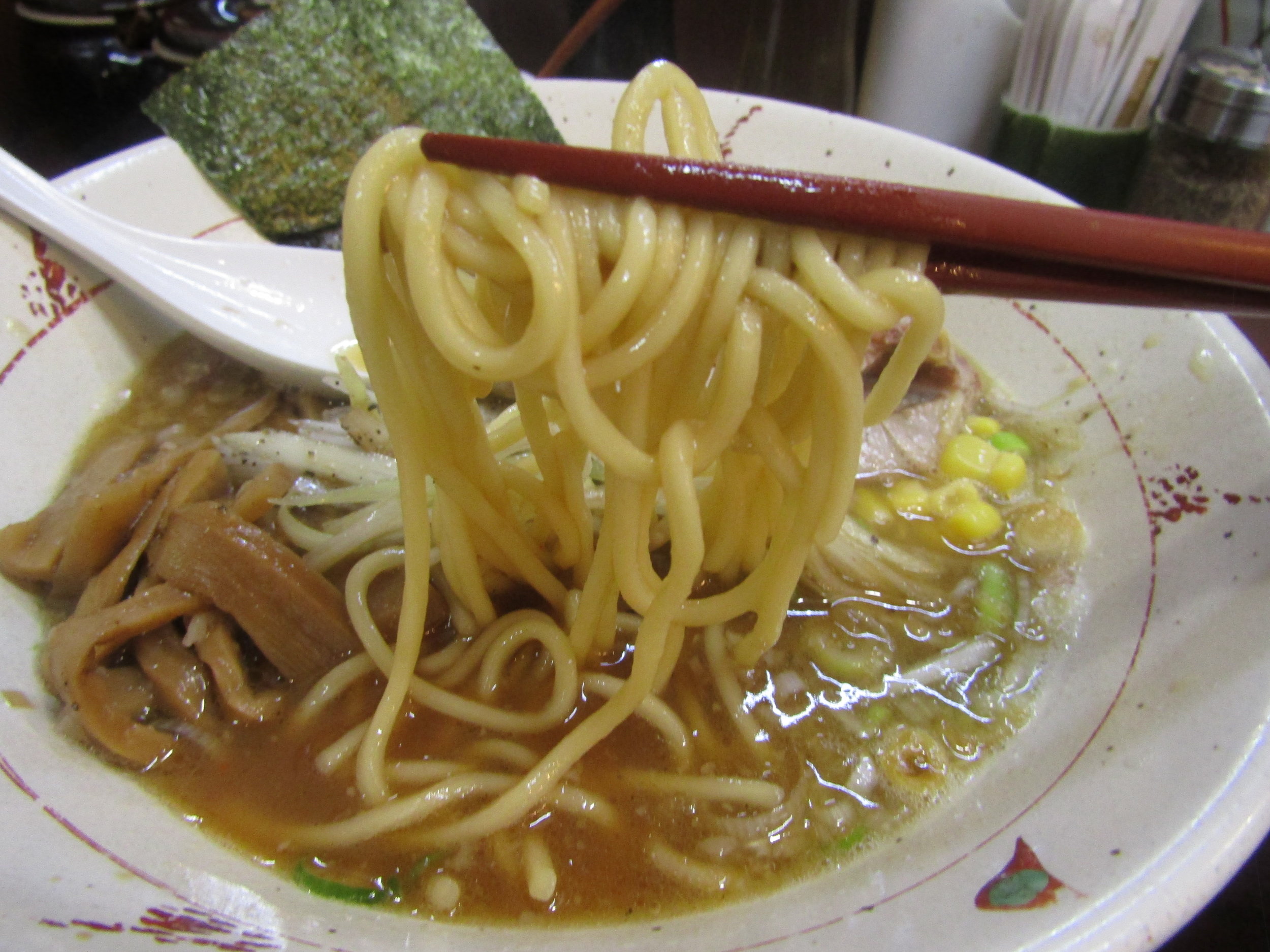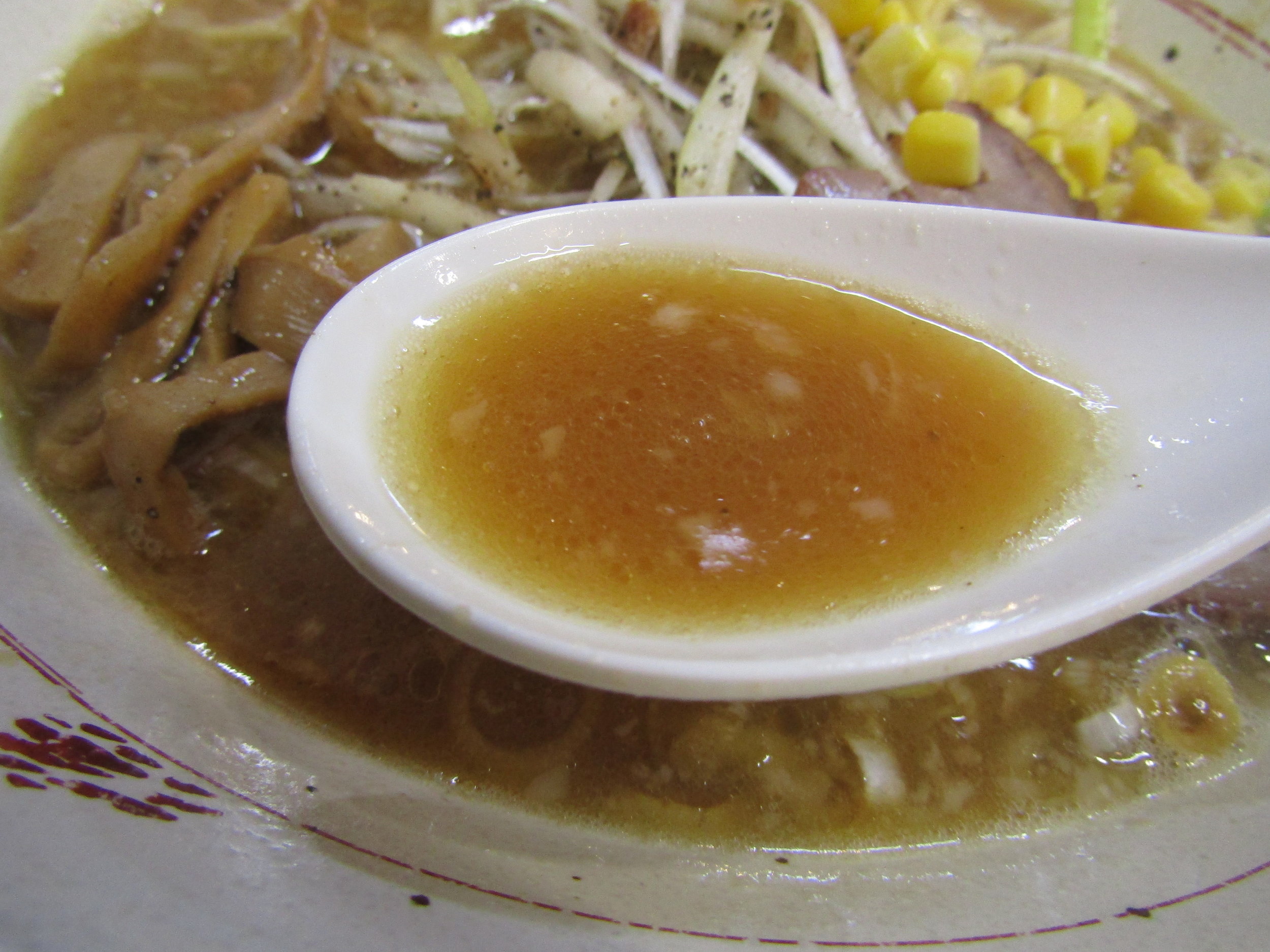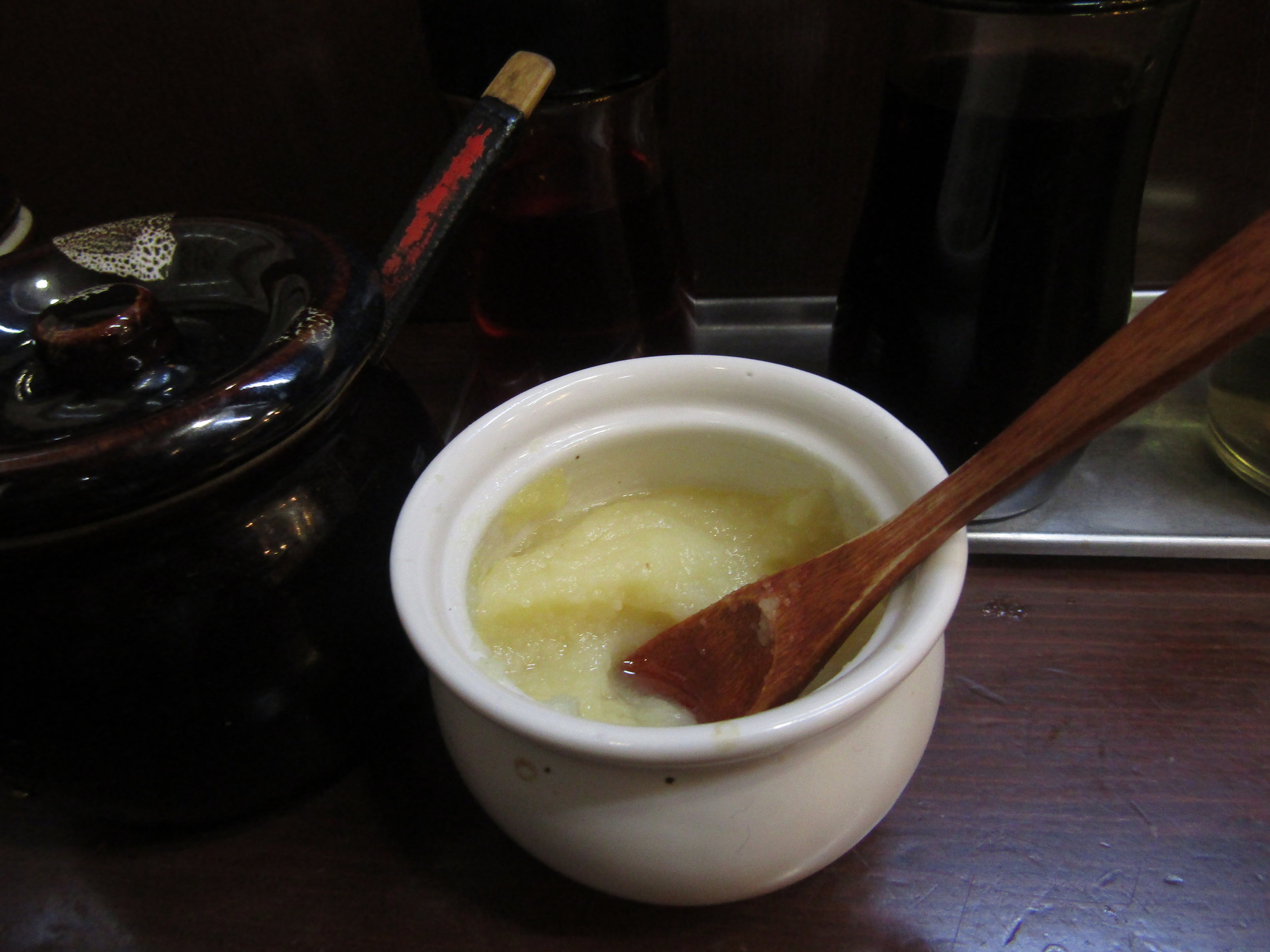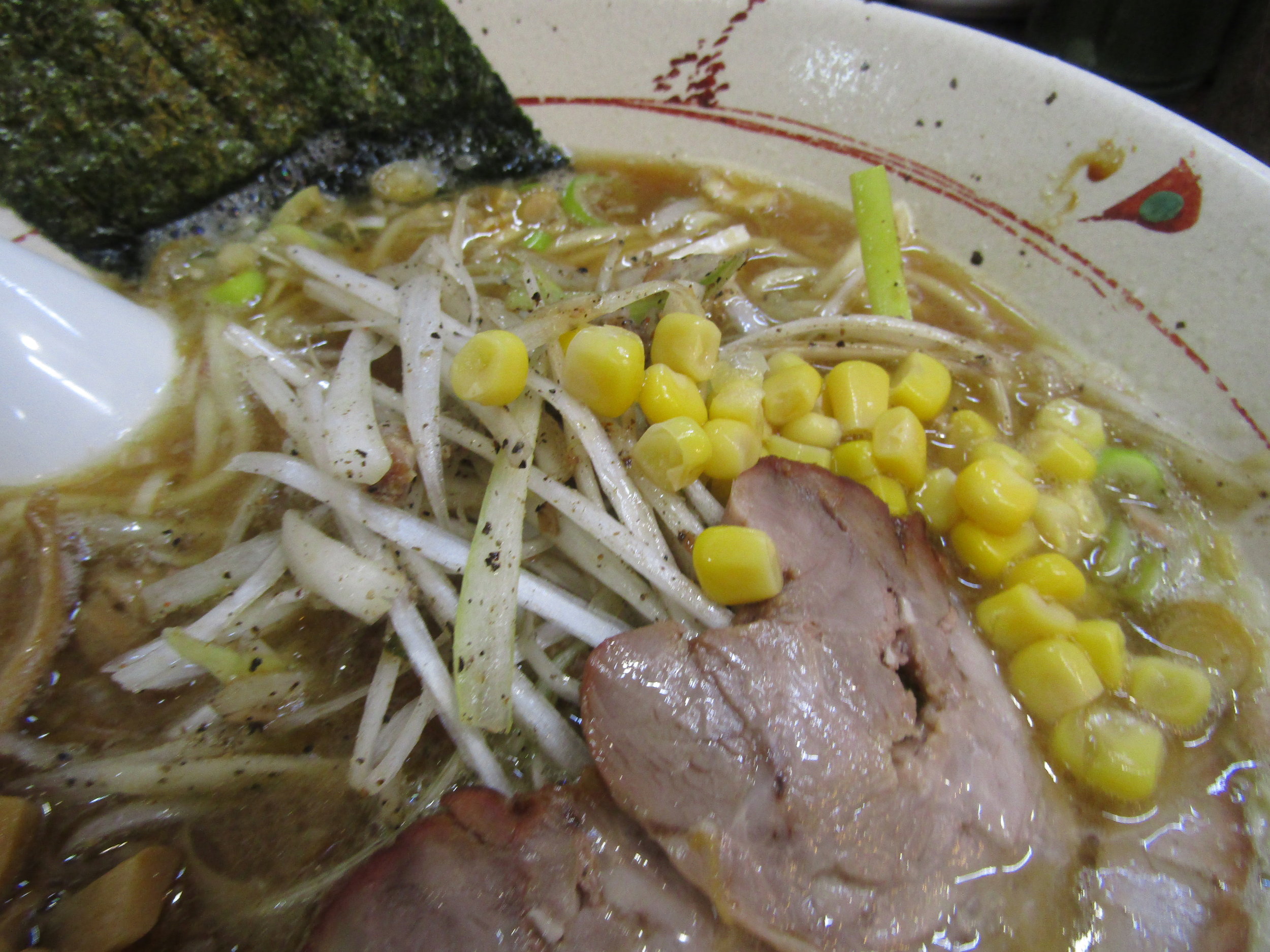Lion Fuchu Honten (らいおん 府中本店); Green Onion Ramen, Fuchu
Fuchu is home to a number of wonderful ramen shops, but one ramen shop has been operating in Fuchu since the 1980s and that is this shop, Lion. The physical location has moved within Fuchu multiple times as the small city has evolved with malls and shopping centers being built, but the recipe itself has remained the same. Long time residents of Fuchu consider Lion to be their “home” ramen and you’ll likely find yourself side by side with many regulars here.
The current shop is located on the first floor of the Kururu shopping mall which is connected to Fuchu station. There is about 24 seats inside, but they fill up quickly during peak lunch and dinner hours. Once you enter, you purchase tickets at the machine on the left before taking your seat. They have Shoyu, Shio, Miso, and a Tsukemen variety of their ramen here with an assortment of different add on toppings. Unlike top ramen restaurants around Tokyo that serves their ramen as is with few add on topping choices, the options to customize here is endless. If you’re here as a student be sure to show your school ID as you’re allowed one free extra topping option.
The main ramen here is the pictured Shoyu Lion Ramen, which is an old school, light tonkotsu ramen with green onion seasoned with sesame seed oil sprinkled on top. I opted not to get any additional toppings to try and review their basic ramen. In addition to the green onions, the ramen includes a couple slices of roast pork char siu, menma bamboo shoots, a spoonful of corn, and a couple slices of dried seaweed. At the counter you have an option for grated garlic, spicy miso, and chili peppers. If you opt for the tsukemen, soup wari, or plain broth, is available for you to lighten the soup after you finish up your noodles.
After having so many ramen bowls from top tier, renown ramen shops, I actually quite enjoyed the change of pace with this nostalgic bowl of light, tonkotsu ramen. Their ramen isn’t like most tonkotsu ramen you might enjoy at chain restaurants like Ippudo, Ichiran, and Tenkaippin. Lion uses a variety of pork bones simmered on low heat to obtain this lighter broth base. The pork bones are simmered with garlic and a variety of vegetables making the soup incredibly easy to eat. You can taste the intense flavor of the pork, but also the sweetness from the vegetables and garlic. The shoyu tare gives a nice roasted soy flavor and works well with the tonkotsu broth. As you can see from the photo, bits of pork fat remains in the soup giving a nice oily after taste. To be honest, you could probably guess that this soup will be quite oily as the floors of this restaurant is extremely slippery from the fat residue of the soup. The grated garlic at the table was a nice touch and added some nice bite to the soup. Maybe I didn’t add enough, but the spicy miso paste and chili peppers weren’t as spicy as I would have liked, but was great for providing a little flavor change mid bowl.
The noodles are thin, traditional Chinese style men. It’s nothing too special, but it works well with the soup and balances the intense flavors of the soup and toppings. I’m not usually a huge fan of dried seaweed, but I enjoyed it with this soup. It soaks up the flavors of the soup while providing a bit of seafood umami. I could honestly do without the corn topping, but I think I would have appreciated it if I had ordered their miso variety.
My favorite part about the ramen is definitely the thinly sliced, sesame seed oil flavored green onion and char siu combination. The sharp bitterness of the green onions still remain and works incredibly well with the fatty pork slices. The sesame seed oil and black pepper seasoning on the green onions counterbalances the oiliness of the char siu and it had me wishing I had a side of rice. The intense flavor combination of the two made sure I didn’t put my ladle and chopsticks down and I was finished with my bowl in minutes. For an extra 150 yen, you can order extra green onions and from reviews I had read online, it seemed to be a popular option. After finishing this bowl, I completely understand the sentiment. The green onions here are truly addicting.
I had recently gotten a comment regarding the ramen I review as great, but not places people can come have a bowl regularly. As I had been focusing primarily on top ramen shops around Tokyo, most of these shops had drawn long lines due to its popularity making it impractical for casual ramen eaters. I think Lion fits the bill here if you’re looking to have an authentic, local ramen experience. If what you’re looking for is a traditional place to have ramen side by side with Japanese locals, Lion will fulfill your need.
